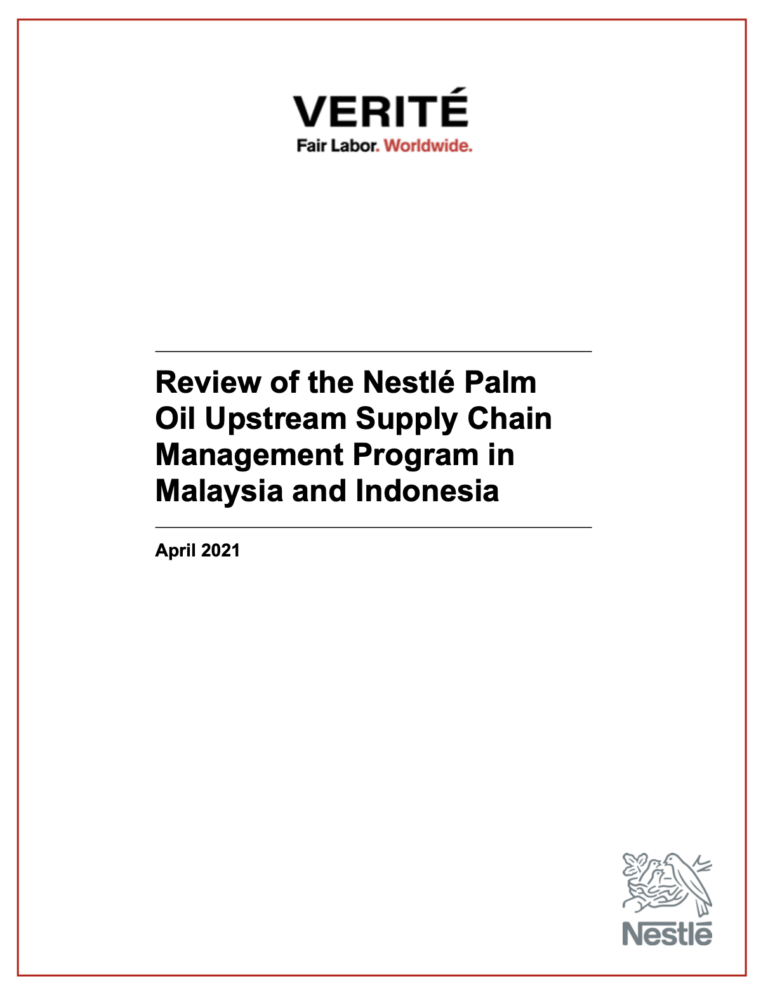In recent years, labour practices in the palm oil sector in Southeast Asia have drawn significant attention from both media and civil society actors. In June 2018, Nestlé began a partnership with Verité on a multiyear program to improve working conditions across its palm oil supply chains globally, with a focus on both Malaysia and Indonesia. The objectives of this ongoing program are to: understand and assess the nature and dynamics of actual and potential human rights impacts, and in particular those related to labour practices, in Nestlé’s upstream supply chain; strengthen Nestlé’s supplier management program for its upstream supply chain, in alignment with the Nestlé Responsible Sourcing Standard (RSS); and build the capacity of Nestlé and its palm oil suppliers to identify, diagnose and remediate labour issues.

